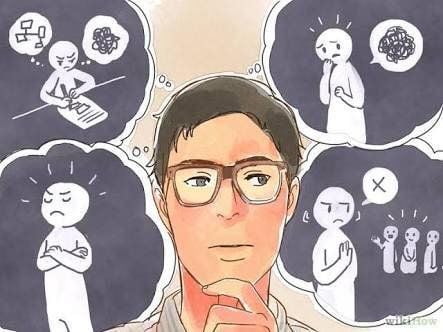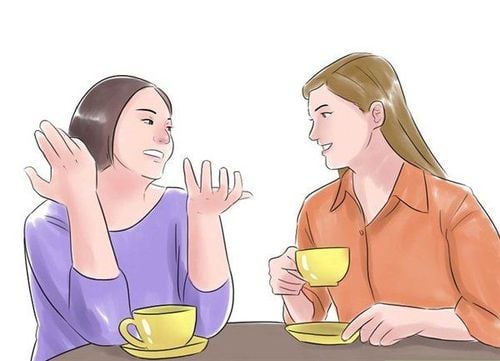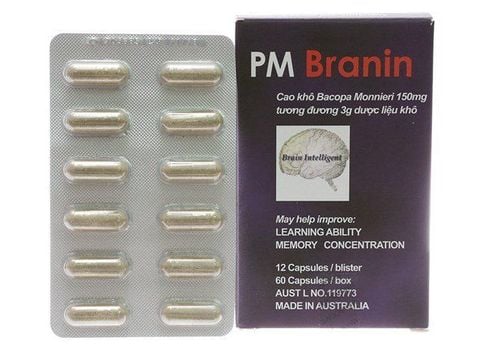This is an automatically translated article.
Obsessive-compulsive syndrome causes repetitive, uncontrolled thoughts and actions that most sufferers are aware of the superfluous nature of what they are doing. Treatment of obsessive-compulsive syndrome is mainly with drugs and psychotherapy combined with active lifestyle.
1. What is Obsessive Compulsive Syndrome?
Obsessive-compulsive disorder (OCD) is a mental disorder with uncontrollable repetitive thoughts and actions.
Obsessive compulsions rarely cause serious health problems, but they affect many activities of living, studying, working and surrounding relationships.
People with obsessive-compulsive disorder have the ability to be aware of the absurdity or excessiveness of their thoughts and behaviors, but can't resist them. For example, people with the obsessive-cleansing type are often too clean, they can't control the behavior of observing and cleaning the house even when the house is very clean.
The cause of the disease has not been determined, but researchers suggest that serotonin disorders and genetics may be the main causative factors. The disease usually occurs in the age group of 15-25 years with a higher incidence in women than in men.
2. Obsessive Compulsive Symptoms
Some common symptoms with obsessive-compulsive people include:
Imagining violent or depraved images; Fear of harming oneself and others or committing shameful actions; Requires that everything be organized and systematic; Feeling excessively disgusted when seeing messy, dirty, polluted waste; Waking up at night to check the appliances are off, the door is locked or not; Arrange items such as clothes, shoes, dishes... in order to get rid of discomfort; Wash your hands frequently to make sure germs don't get through the skin; Count the number of doorways, stairs... automatically; Whisper several times. The difference between behaviors and thoughts in people with obsessive-compulsive syndrome compared with normal people is shown through the following characteristics:
Being dominated by long-lasting repetitive thoughts and actions at least 1 hour/day; Be aware of excesses of thoughts and behaviors but have no control over them; Performing repetitive behaviors solely to reduce anxiety but not to be enjoyable or enjoyable; Some people have abnormal, uncontrollable muscle movements such as blinking repeatedly, shrugging, grimacing, snorting, etc.

Người mắc hội chứng ám ảnh cưỡng chế có thể gặp một số triệu chứng đặc biệt
3. Treatment of Obsessive Compulsive Disorder
3.1. Treatment of Obsessive-Compulsive Disorder with Drugs Some types of obsessive-compulsive disorder are considered to use medication to relieve symptoms, but not to completely cure. Usually, drugs are used in combination with psychotherapy to increase the effectiveness of treatment. Some medications used in the treatment of OCD include Clomipramine (anafranil), Fluvoxamine (luvox CR), Fluoxetine (prozac), Paroxetine (Pexeva), Sertraline (Zoloft).
3.2. Psychotherapy Psychotherapy is used in the treatment of obsessive-compulsive disorders to change the patient's excessive thinking and behavior and increase the effectiveness of drug use.
Behavioral therapy: Includes 2 techniques, one is to let the patient express the obsessive thoughts to reduce stress, the other is to teach some techniques to stop the obsessive thoughts and compulsive behaviors. processing; Cognitive therapy: Used to help patients reassess excessive anxiety and the danger of thoughts and actions. 3.3. Self-improvement measures Obsessive-compulsive self-improvement measures that patients can apply at home include:
Talk, receive encouragement and help from friends and family; Recording obsessive thoughts and behaviors to consciously drive them away; Get enough sleep and on time; Participate in social activities; Exercise regularly and eat enough meals, on time; Take measures to reduce anxiety and stress after studying and working such as deep breathing, meditation, yoga, warm bath...

Cải thiện tình trạng ám ảnh cưỡng chế bằng cách tâm sự với người thân
4. Is Obsessive Compulsive Disorder Dangerous?
In addition to spending a lot of time doing unnecessary, unnecessary behaviors, people are also at risk for more serious problems such as:
Severe OCD can cause anxiety and depression severe pre-existing depression; Affect the quality of work, study and relationships; Having an unusual sex life with someone who is obsessed with sex; Harm to yourself and others (rare); Increased risk of unnecessary conflicts in the family; Causes changes in appearance; Causes anxiety and depression with severe compulsive disorders. In short, people with obsessive-compulsive disorder have the ability to be aware of the absurdity or excessiveness of their thoughts and behaviors, but can't resist them. Obsessive compulsions rarely cause serious health problems, but they can greatly affect living, studying, working, and relationships around. Therefore, early treatment will help patients lead a healthier life.
Psychological Clinic - Vinmec International General Hospital currently has the function of examining, consulting and outpatient treatment of psychological and mental health problems. With modern equipment and a team of doctors who are lecturers of psychiatry at Hanoi Medical University, the Psychology clinic - Vinmec International General Hospital is capable of implementing tests and psychotherapy. Specialized management for medical examination and treatment. With enthusiasm and love for the profession, the team of doctors working at the Psychology Clinic - Vinmec International General Hospital always gives customers the best and most effective services.
Please dial HOTLINE for more information or register for an appointment HERE. Download MyVinmec app to make appointments faster and to manage your bookings easily.













